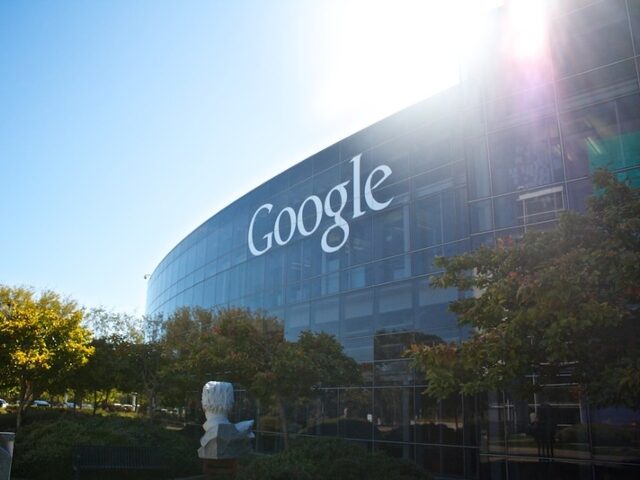Google is currently on trial for allegedly abusing its dominance in the digital advertising industry, which is valued at approximately $200 billion. Here are a the key points that emerged from the first week in the courtroom.
Breitbart News has reportedly extensively on Google’s ongoing antitrust trial related to its alleged monopolistic practices in the digital advertising industry. The U.S. Department of Justice has accused Google of seizing sustained control over the entire advertising technology (“adtech”) stack through acquisitions and anticompetitive conduct.
SearchEngineLand reports that this stack includes the tools advertisers and publishers use to buy and sell ads, as well as the exchange that connects them. Google has denied these claims, stating that several ad companies compete in the space, a mixture of tools are used so they don’t receive the full fees, their fees are lower than the industry average, and small businesses will suffer the most if they lose this case.
The landmark case, which began on September 9, could potentially bring significant changes to Google and publishers. However, experts argue that the outcome could also seriously hurt advertisers. It is equally possible that the trial will result in no changes, allowing Google to continue operating as it wants.
During the first day of the trial, the DOJ laid out their accusations, claiming that Google controls the advertiser ad network, dominates the publisher ad server, and runs the ad exchange connecting the two. In response, Google disputed the definition of open-web display ads and argued that the DOJ’s market definition is “gerrymandered,” meaning that the DOJ is manipulating the boundaries of their definition to portray Google as the bad guy. Google also presented a chart showing competitors like Microsoft, Amazon, Meta, and TikTok.
On the second day, Stephanie Layser, a former ad executive at News Corp, testified that Google’s ad tools leave publishers feeling “stuck” due to the high revenue risk associated with switching ad servers. She explained that 40-60% of NewsCorp’s revenue came from AdX, with a majority of that coming from Google Ads demand. Jay Friedman, CEO of Goodway Group, criticized Google’s variable pricing, describing it as “gaming the system” and highlighting Google’s inherent conflict of interest in controlling both the buy- and sell-side of the ad market.
The third day of the trial focused on Google’s access to vast user data through platforms like YouTube and Search, which gives them a significant competitive advantage and makes it difficult for other platforms to thrive. Other key themes argued included Google’s control over ad servers stifling competition and innovation, as well as practices like First Look and Dynamic Revenue Share favoring Google at the expense of publishers.
On the fourth day, testimony from former Google employees and competitors shed light on Google’s efforts to maintain control over ad pricing and suppress competition. Internal emails revealed that Google considered lowering its take rate to ease publisher concerns but ultimately decided to push ahead with changes that reduced transparency and control for publishers.
The trial is moving faster than expected, with the DOJ anticipating half the originally planned time to present their case. Google has created a “trial media center” website where they are posting documents related to the case, although it is unclear if all trial documents are made available there.
If the DOJ wins, Google could face up to $100 billion in advertiser lawsuits, according to Bernstein analysts. The trial is expected to last a few weeks, and its outcome could determine whether Google’s control over digital advertising constitutes an illegal monopoly, potentially affecting how information is disseminated online.
In a separate case in August, a federal judge ruled that Google violated antitrust law. The ongoing antitrust trials against Google highlight the growing concern over the company’s dominance in the digital advertising industry and the potential impact on advertisers, publishers, and consumers alike.
Read more at SearchEngineLand here.
Lucas Nolan is a reporter for Breitbart News covering issues of free speech and online censorship.

COMMENTS
Please let us know if you're having issues with commenting.